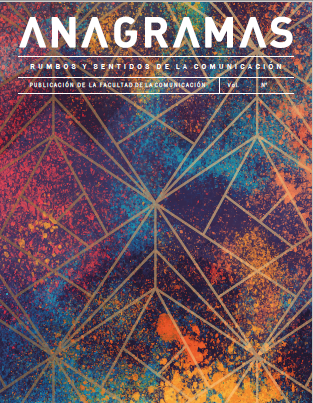Social research: between scientific activity and family life
Main Article Content
Abstract
Activities related to research in underdeveloped countries require not only knowledge but also effort, work and dedication. The objective of this research is to identify the areas in which the researchers work and the effect of specific responsibilities such as: home; the relationship with the partner; children and family affect their performance. This research was carried out using a methodology with a qualitative, exploratory methodological approach, applying an instrument that was validated by experts and cross-sectional, the sample was qualitative for convenience. The study group were women, academics and scientists, who carry out research activities at UNAM and to whom the instrument was applied. This was placed on an application to be answered online. For its evaluation and interpretation, a Likert scale was applied. One of the main findings was that more than 90% of the women who answered the questionnaire showed higher levels of stress than normal. Other results were that social pressure increases among female researchers due to household responsibilities, such as cleaning; childcare and home maintenance. It is concluded that the responsibilities of the home cause conditions that make research work difficult among women who carry out research. One of the main recommendations is to reduce the emotional pressure to which the researchers are exposed to perform their activities in the workplace and improve their mental health to establish healthy family relationships. On the other hand, reconciling research work with home workloads could contribute to making their scientific activity more efficient.
Article Details
References
Acker, S. y Armenti, C. (2004). Sleepless in academia. Gender and Education, 16(1), 3-24. https://doi.org/10.1080/0954025032000170309
Asociación Nacional de Empresarios de Colombia (ANDI) y Ministerio de Trabajo. (2020). Más Equidad - Resultados Encuesta de Conciliación de Vida Laboral, Familiar y Personal. https://www.andi.com.co/Uploads/INFORME%20FINAL%20EQUIDAD%20COVID.pdf
Byron, K. (2005). A meta-analytic review of work-family conflict and its antecedents. Journal of Vocational Behaviour, 67(2), 169-198.
Camarero Rioja, L., Castellanos Ortega, M. L., García Borrego, I. y Sampedro Gallego, R. (2006). El trabajo desvelado. Trayectorias ocupacionales de las mujeres rurales en España. Ministerio de Trabajo y Asuntos Sociales. Instituto de la Mujer.
Ceci, S. J., Ginther, D. K., Kahn, S. y Williams, W. M. (2014). Women in academic science: A changing landscape. Psychological science in the public interest, 15(3), 75-141.
De Barbieri, T. (2004). Más de tres décadas de los estudios de género en América Latina. Revista Mexicana de Sociología, 66, 197-214. https://doi.org/10.2307/3541450
Doyle, C. y Hind, P. (1998). Occupational stress, burnout and job status in female academics. Gender, work & organization, 5(2), 67-82.
Fernández, M. L. U. (2014). La vida cotidiana como espacio de construcción social. Procesos históricos, (25), 100-113.
Frone, M. R., Russell, M. y Cooper, M. L. (1997). Relation of work-family conflict to health outcomes: A four-year longitudinal study of employed parents. Journal of Occupational and Organizational Psychology, 70(4), 325-335. https://doi.org/10.1111/j.2044-8325.1997.tb00652.x
Greenhaus, J. H. y Beutell, N. J. (1985). Fuentes de conflicto entre el trabajo y los roles familiares. Revisión de la Academia de Gestión, 10(1), 76-88.
Grupo de Información en Reproducción Elegida (GIRE). (2017). Horas hábiles: corresponsabilidad en la vida laboral y personal. https://gire.org.mx/wp-content/uploads/2019/11/VIDA_LABORAL_Y_REPRODUCTIVA.pdf
Habermas, J., I Ramió, J. R., DomeÌ€nech, A. y Grasa, R. (1981). Historia y crítica de la opinión pública: la transformación estructural de la vida pública. Gustavo Gili.
Hareven, T. K. (1991). The home and the family in historical perspective. Social research. Social Research: An International Quarterly, (58), 253-285. https://philpapers.org/rec/TAMTHA
Hussain, B., Zulfqar, A., Gilani, N. y Waheed, S. A. (2021). Investigation of work-family and familywork conflicts among school teachers from gender and marital status perspective. Humanities & Social Sciences Reviews.
Instituto Vasco de Estadística de España (Eustat). (2010). Encuesta sobre la conciliación de la vida laboral, familiar y personal. https://www.eustat.eus/document/datos/cuestionarios/cues_cvl10_c.pdf
Jijena Michel, R. D. y Jijena Michel, C. E. (2020). Percepción de conflicto trabajo-familia y apoyo directivo para una cultura trabajo-familia en profesores universitarios. Investigación y Desarrollo, 1(2), 13-23. http://dicyt.uajms.edu.bo/revistas/index.php/investigacion-y-desarrollo/article/view/1105/1107
Jiménez, A. y Gómez, V. (2015). Corresponsabilidad familiar y el equilibrio trabajo-familia: medios para mejorar la equidad de género. Polis, Revista Latinoamericana, 14(40),1-15. https://www.redalyc.org/articulo.oa?id=30538546018
Marx, K. (1975). El capital. Siglo XXI Editores.
Machado-Taylor, M. D. L., White, K. y Gouveia, O. (2014). Job satisfaction of academics: Does gender matter? Higher Education Policy, 27(3), 363-384.
Magadley, W. (2019). Moonlighting in academia: a study of gender differences in work-family conflict among academics. Community, Work & Family, 24(3), 237-256. https://doi.org/10.1080/13668803.2019.1678458
Martín, T. T. (2005). De la imposible conciliación a los permanentes malos arreglos. Cuadernos de relaciones laborales, 23(1), 015-033.
McDowall, A. y Kinman, G. (2021). Equilibrio trabajo-vida y género: suposiciones desafiantes y complejidad desentrañada. En J. Hassard, J. y L. D. Torres (eds.), Aligning Perspectives in Gender Mainstreaming. Alineando Perspectivas en Salud, Seguridad y Bienestar (pp. 37-60). Springer. https://doi.org.pbidi.unam.mx:2443/10.1007/978-3-030-53269-7_3
Organización Mundial de la Salud (OMS). (2013). Plan de acción sobre salud mental 2013-2020. https://apps.who.int/iris/bitstream/handle/10665/97488/9789243506029_spa.pdf;jsessionid=A05BCF1643CE012821C63C5B3D6A3DC6?sequence=1
Padrós Blázquez, F., Soria-Mas, C. y Navarro Contreras, G. (2012). Afecto positivo y negativo: ¿Una dimensión bipolar o dos dimensiones unipolares independientes?; positive and negative affect: One bipolar dimension or two independent unipolar dimensions? Interdisciplinaria, 29(1), 151-164.
Salles, V. y Olivo, M. Á. (2006). Roles sociales y acción: los riesgos de inestabilidad laboral y los avatares de la figura del proveedor. Teorías sociales y estudios del trabajo: nuevos enfoques, (24), 49-69.
Torns, T. (2015). Family changes in Spain: Some theoretical considerations in light of the wellbeing of everyday life. Family Changes in Spain: Some Theoretical Considerations in Light of the Wellbeing of Everyday Life. Cambio. Revista Sulle Transformazioni Sociali, 5(9), 137-146. https://doi.org/10.13128/cambio-19194
Yanagisako, S. J. y Collier, J. F. (1987). Toward a unified analysis of gender and kinship. Gender and kinship: Essays toward a unified análisis. En S. J. Yanagisako y J. F. Collier (eds.), Essays Toward a Unified Analysis (pp. 14-50). Stanford University Press.





